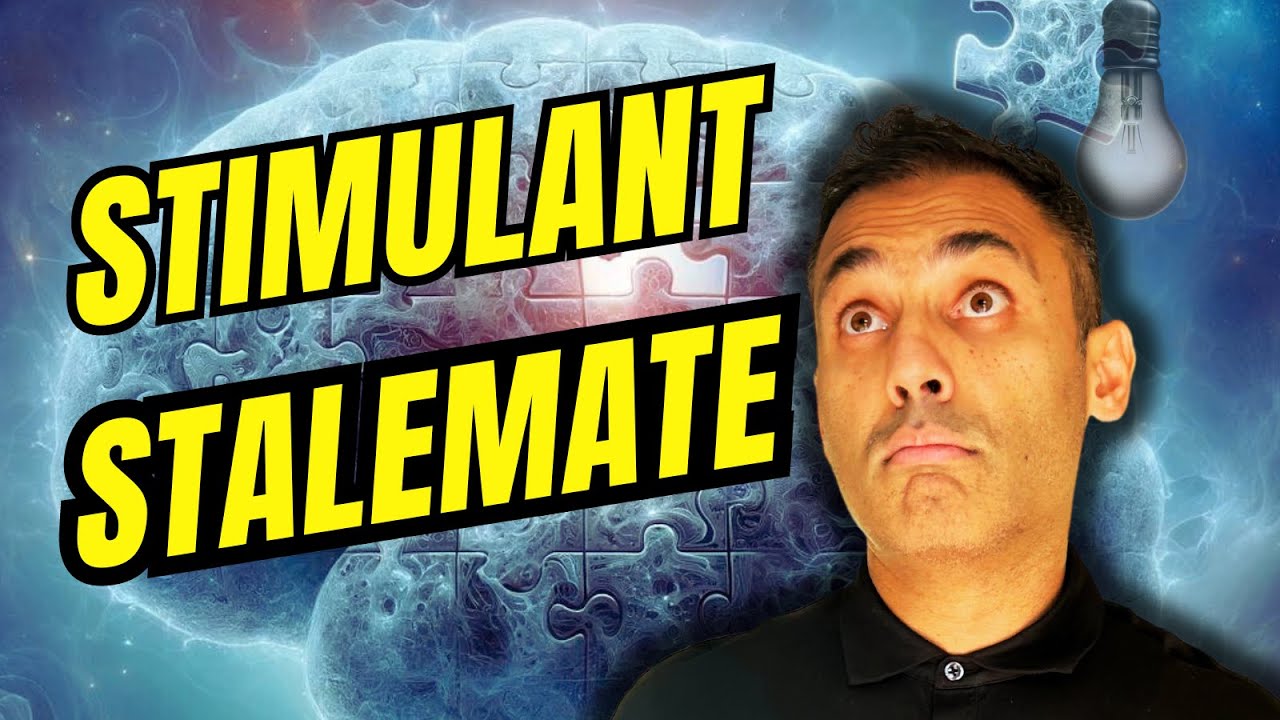Idk about the whole “127 variations” thing and tbh I’m deeply skeptical about it - I reckon that’s just a way of selling a course tbh.
But aside from that and the brief shilling segment in the middle, this video is a really thorough look at ADHD across its presentation, symptoms, treatment options with decent consideration for neurophysiology and neurochem etc. in about as succint a video as I’ve ever come across.
I think a lot of clinicians don’t dig deep enough into the span of symptoms of ADHD and this might be a good starting point for folks with ADHD or people who think they might have it to begin discussions with their doctors, especially if you are dealing with difficult symptoms or side effects.
Some bits might go over your head unless you’re a nerd for this stuff but I can find some other videos or I can do my best to explain but even if you don’t fully understand every part of this video I reckon you’ll still find some useful information in it.
(It’s also kinda vindicating because I occasionally talk about conditions that aggravate ADHD or which can mimic it - sleep disturbances, anaemia, problems with hormone levels etc. so it’s nice to see this stuff getting mentioned and it’s validating to see a qualified psychiatrist talking about this because it means I’m not a total crackpot.)
I wish people explained this stuff to me when I was younger. I always got the impression that a psychiatrist just put me on Adderall in Kindergarten to make it more bearable for the teacher. Nothing else for management except “take your meds.” No other psych visits or anything. I still don’t really have a good handle on what’s up with me.
Tbh when I got diagnosed with ADHD as an adult I went searching for information and aside from academic articles there was:
-
Info sheets (e.g. “How To Get Your ADHD Child To Do Their Homework”) that were borderline useless
-
ADDitude Magazine stuff (which is a bit sketchy and which is either aimed at such a broad audience that it’s really generic or their videos which seem to attract dubious guests to talk about “strategies” that usually amount to vague descriptions and boilerplate advice)
-
Old lectures or sometimes interviews with Russell Barkley or William Dodson
The level of information online in social media peer spaces was really dismal too - I swear to Marx if I hear people reduce ADHD down to being “a lack of dopamine” one more time I’m going to have a stroke. (That’s not aimed at anyone in particular, it’s just a super common trope that imo is actually really harmful.)
There’s a lot of misinformation out there about ADHD and ADHD meds, and there’s a huge gulf between the basic “So your child has ADHD, now what?” info and the stuff that exists in academia. It’s really fucking frustrating and I guess I’m just lucky that I had the right combination of things to be able to channel that frustration into becoming the knowledgeable person about ADHD that I needed in my own life.
So much advice on managing ADHD feels virtually identical to what you get regarding depression - it’s just a list of things that might make it easier to manage but it’s basically just healthy lifestyle stuff (“exercise regularly, get 6-8 hours of uninterrupted sleep per night, eat a healthy and balanced diet, maintain a routine, limit screentime, remember to take breaks regularly, practice mindfulness exercises, don’t beat yourself up when you encounter setbacks…”) Bruh, that’s barely one step up from telling a depressed person “If you start to feel sad, think of something that makes you feel happy” smh.
I always got the impression that a psychiatrist just put me on Adderall in Kindergarten to make it more bearable for the teacher.
Not a criticism aimed at you but rather the abject failure on behalf of professionals and adults around you to do basic psychoeducation but this is such a harmful trope and it leads people to think that ADHD meds are just a Big Pharma substitute for good parenting, “discipline” (usually just a stand-in phrase used to make advocating for low grade child abuse socially acceptable), and the moral character of the individual.
Oh and sometimes there’s something thrown in there about how running around, usually in paddocks or forests, is the cure for ADHD but nowadays kids have to, like, sit down instead. Occasionally you get the manosphere bullshit about how “Boys aren’t allowed to be boys because of “tOxIc mAsCuLiNiTy” so instead of letting boys beat eachother up, harass girls, and engage in destructive and antisocial behaviour we just dope them up instead” as well.
I still don’t really have a good handle on what’s up with me.
Well here’s an open offer: if you ever have any questions about ADHD or you need ADHD stuff explained, I’m happy to share what I know - just ask. I’m not a substitute for a psychiatrist but I’m no slouch.
So much advice on managing ADHD feels virtually identical to what you get regarding depression - it’s just a list of things that might make it easier to manage but it’s basically just healthy lifestyle stuff (“exercise regularly, get 6-8 hours of uninterrupted sleep per night, eat a healthy and balanced diet, maintain a routine, limit screentime, remember to take breaks regularly, practice mindfulness exercises, don’t beat yourself up when you encounter setbacks…”) Bruh, that’s barely one step up from telling a depressed person “If you start to feel sad, think of something that makes you feel happy” smh.
yeah it’s very
bro just do the things you can’t do bro
-people giving me “advice”
“You just have to get better” - My immediate family. Ugh.
Do you mind if I message you about it? Just to give a short summary of my experience.
Sure, go for it!
-
Next, we need one for Autism.
Commenting to watch after I have my next adderall
I found a YouTube link in your post. Here are links to the same video on alternative frontends that protect your privacy:
What i wanna know is why does the lannett mfg adderall so shitty
That’s a big question.
I’ve seen a lot of reports in the last couple of years where people have been saying that their ADHD meds aren’t working the same or they aren’t working at all. One person even discovered some old meds from the same manufacturer they had stashed away and they found that the old meds worked whereas the new meds didn’t.
Not to discount people’s experiences but the placebo effect is strong. Even when someone knows they are getting a placebo they can still get the effect. We can’t rule that (and the nocebo effect) out in this case.
Often with generic medications or medications that different manufacturers produce, the medication will contain the same amount of active ingredients although they can be a different mixture of enantiomers, so it’s the same molecule but it’s either left-handed or right-handed (which itself is long story…) For most cases this doesn’t make any difference but it can for some people. When it comes to amphetamine, there’s a very clear difference between how the left and right-handed molecules work in the body but Adderall is set at a strict ratio of these molecules so, at least in theory, Adderall shouldn’t have this problem.
The next thing down the list is the inactive ingredients - binders and fillers and all of that stuff. In theory these should have no impact on the medication because it’s just stuff like cornstarch, talc, lactose etc. But without knowing the exact composition and doing rigorous testing it would be naive to rule it out as a possibility. Obviously different manufacturers will use different inactive ingredients because the only thing that the FDA or other regulatory bodies strictly monitor is the active ingredients.
The next thing is the biggest variable and that’s the lifestyle factors for the individual. A change in diet, sleep disruptions, hormonal cycles, stress levels, other conditions like anxiety or depression, and a huge pile of other things can all have an impact on how effective ADHD meds seem to be and it’s really difficult to control for all of this.
Idk what to say. Is it just a manufacturing mishap? Is there something fishy going on? Is it the placebo effect? It’s impossible to tell without a lot more information.
I guess if I were in your shoes I’d probably try to get some Lannett manufactured Adderall and some Adderall manufactured by another company of the same dosage, then I’d set up a simple blind study - for the next 6 or 12 days put an equal amount of the two different Adderalls into separate cups or containers. Label the bottoms of each one to indicate whether they are Lannett or the other one but in such a way that you can’t tell without looking at the bottom. Shuffle them so you don’t know which is which. If the pills are visibly different then when you go to take one, close your eyes first. Each day record how effective the dose has been - you could do it on a scale of 1 to 10 or just something binary like effective/not effective or low/high effectiveness. I would also add in major details, such as if I had a terrible night’s sleep or if I had an exam that day because I’d expect to feel less effect given those sorts of circumstances. Remember to label each container with the day of the week you took it on.
At the end of the experiment, match your day’s effectiveness rating to the relevant container and the manufacturer. If you can identify a very clear split where the Lannett stuff really is less effective vs the other stuff then I’d really start investigating what’s going on.
It’s just hard to tell tbh. ADHD is a condition that shifts a lot depending on circumstances, stimulants are designed to have a relatively short period of effect (as opposed to say antidepressants or lithium where it has a very even, sustained effect), and there’s a lot of variables to try and account for.
Don’t take this reply as being dismissive of your experience or anyone else’s - if I thought that this was a non-issue I wouldn’t have bothered to write out all the other factors to take into consideration. Whatever is really going on here, the most important thing is to figuring what works best for your quality of life.
How To ADHD is my go to channel for ADHD content, she has so much good stuff. Her interviews of experts are amazing.
Also Black Girl, Lost Keys is good if you need an intersectional perspective (and also just general advice).






